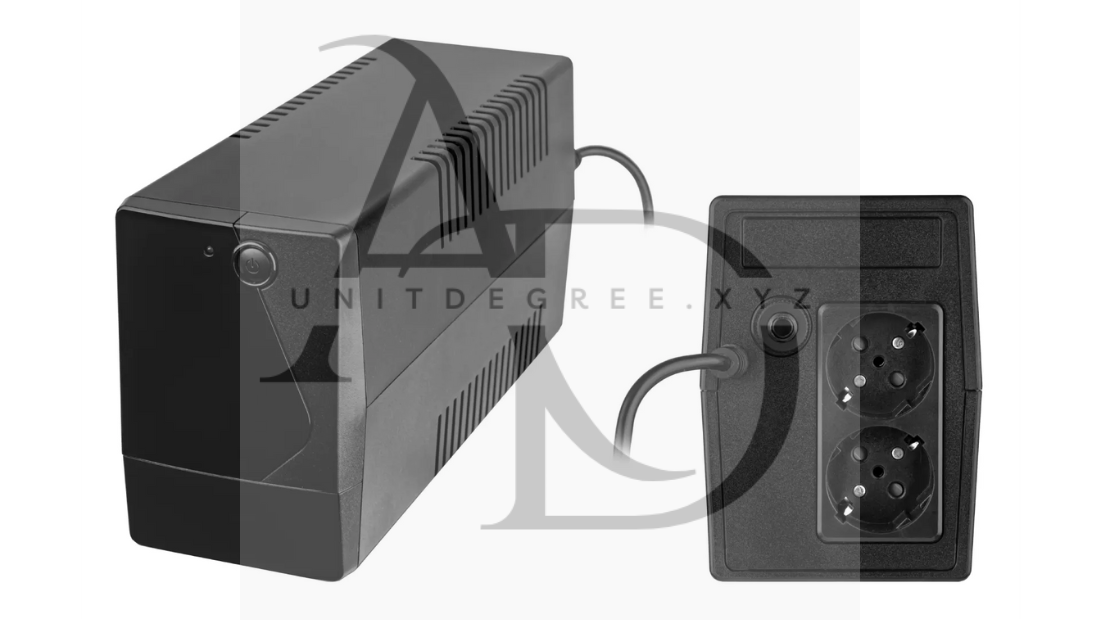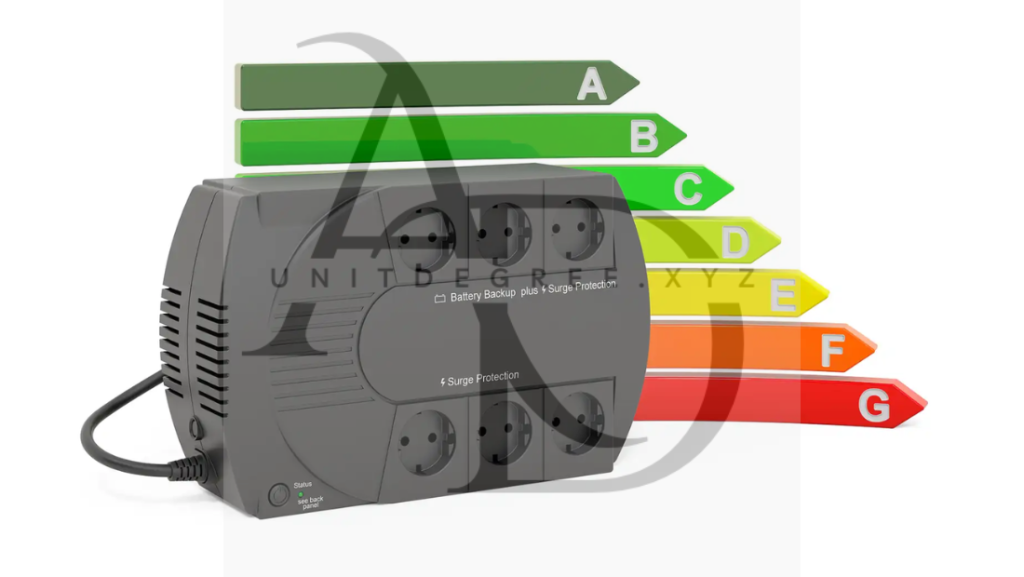Blog
Uninterruptible Power Supplies: The Backbone of Reliable Energy Solutions
In an increasingly connected world, power interruptions can cause significant disruptions. Uninterruptible Power Supplies (UPS) have become essential for maintaining operational continuity across homes, businesses, and industries. Offering instant backup power and safeguarding equipment, UPS systems are a critical component of modern energy solutions. This guide explores their key features, types, and applications while highlighting why they are indispensable in today’s fast-paced environment.
What Are Uninterruptible Power Supplies?
Uninterruptible Power Supplies are devices that provide backup power when the main power source fails or fluctuates. Unlike traditional generators, UPS systems offer instant power transfer, ensuring critical systems remain operational during outages or voltage instability.
- Core Functionality: Supplies uninterrupted power to prevent downtime.
- Voltage Regulation: Stabilizes voltage fluctuations to protect sensitive equipment.
- Backup Duration: Offers temporary power to allow safe shutdown or system continuity.
UPS systems are vital for ensuring reliability in environments where power stability is critical.
Key Features of Uninterruptible Power Supplies
Instant Power Transfer
UPS systems activate immediately during a power outage or voltage drop, maintaining a continuous energy supply.
- No Delay: Ensures seamless power transfer for uninterrupted operation.
- Critical Application Support: Keeps essential systems like servers and medical devices running.
- Voltage Regulation: Maintains stable output to prevent damage to connected devices.
This feature is especially valuable in environments that rely on uninterrupted functionality.
Battery Backup
A robust battery system is at the heart of every UPS, providing the necessary power during an outage.
- Lithium-Ion and Lead-Acid Options: Cater to different power needs and budgets.
- Extended Runtime Models: Offer hours of backup power for prolonged outages.
- Scalable Capacity: Allows for additional batteries to meet growing energy demands.
The battery system ensures reliability when grid power fails.
Surge Protection
UPS systems safeguard connected devices from power surges caused by lightning, outages, or electrical faults.
- Overvoltage Protection: Prevents damage to delicate electronics.
- Transient Filtering: Reduces noise and spikes in the power supply.
- Integrated Circuitry: Monitors and adjusts output for optimal safety.
This feature is crucial for protecting valuable equipment.
Energy Efficiency
Modern UPS systems are designed with energy-saving features that reduce power consumption during standby and operation.
- Eco Mode: Optimizes efficiency by minimizing energy usage.
- Low Heat Output: Enhances performance while reducing cooling requirements.
- Energy Star Certification: Ensures compliance with efficiency standards.
These advancements make UPS systems cost-effective and environmentally friendly.

Monitoring and Control
Advanced UPS models include smart management features for real-time monitoring and control.
- Remote Monitoring: Access power status via apps or web interfaces.
- Diagnostic Tools: Identify potential issues before they lead to system failures.
- Customizable Alerts: Receive notifications for outages, low battery, or other conditions.
These capabilities simplify management and enhance system reliability.
Types of Uninterruptible Power Supplies
Standby UPS
The most basic type of UPS, standby models are ideal for home and small office use.
- Affordable Solution: Provides basic backup and surge protection.
- Quick Activation: Switches to battery power instantly during an outage.
- Compact Design: Saves space in smaller setups.
Standby UPS systems are perfect for protecting devices like routers, modems, and personal computers.
Line-Interactive UPS
Line-interactive models offer enhanced voltage regulation, making them suitable for environments with frequent fluctuations.
- Voltage Stabilization: Adjusts minor power inconsistencies without using the battery.
- Longer Battery Life: Minimizes battery usage to extend lifespan.
- Mid-Range Performance: Balances affordability with advanced features.
These systems are ideal for offices and small-scale businesses.
Online Double-Conversion UPS
For mission-critical applications, online UPS systems provide the highest level of protection and power quality.
- Continuous Power Supply: Converts AC power to DC and back to AC for pure, stable output.
- Zero Transfer Time: Eliminates any delay in power transfer.
- Advanced Monitoring: Includes real-time diagnostics for maximum reliability.
Online UPS systems are widely used in data centers, hospitals, and industrial setups.
Modular UPS
Scalable and flexible, modular UPS systems allow businesses to expand power capacity as needed.
- Customizable Design: Add or remove modules based on changing energy requirements.
- Redundancy Options: Enhance reliability by providing backup within the system itself.
- Cost-Effective Growth: Upgrade capacity without replacing the entire system.
These systems are suitable for organizations expecting significant growth.
Applications of Uninterruptible Power Supplies
Data Centers
UPS systems are critical in data centers to prevent data loss and downtime during power interruptions.
- Server Protection: Ensures continuous operation of critical servers.
- Network Reliability: Maintains connectivity for uninterrupted communication.
- Energy Efficiency: Reduces operational costs through smart energy management.
Healthcare
Hospitals and clinics depend on UPS systems to power life-saving equipment during outages.
- Medical Device Support: Keeps ventilators, monitors, and imaging equipment running.
- Critical Care: Ensures consistent power for operating rooms and ICUs.
- Compliance: Meets strict healthcare safety standards.
Home and Small Offices
UPS systems provide peace of mind for personal and small-scale setups.
- Device Protection: Safeguards computers, modems, and entertainment systems.
- Power Backup: Supports remote work during outages.
- Compact Solutions: Fits easily into limited spaces.
Industrial and Manufacturing
In industrial environments, UPS systems protect machinery and ensure operational continuity.
- Process Control: Maintains automated systems during power interruptions.
- Equipment Longevity: Reduces wear caused by power inconsistencies.
- Safety Assurance: Prevents accidents due to sudden power loss.
Benefits of Uninterruptible Power Supplies
Protects Valuable Equipment
UPS systems shield electronics from damage caused by power surges, spikes, and outages.
Minimizes Downtime
Instant power transfer ensures that operations continue seamlessly, reducing productivity losses.
Enhances System Longevity
By stabilizing voltage and preventing electrical stress, UPS systems extend the life of connected devices.
Supports Critical Operations
From medical facilities to data centers, UPS systems provide peace of mind for essential operations.
Future Trends in UPS Technology
Lithium-Ion Batteries
As lithium-ion technology becomes more affordable, it offers longer lifespan and faster charging than traditional lead-acid batteries.
Smart Grid Integration
Future UPS systems will connect to smart grids for optimized energy distribution and storage.
AI-Powered Management
Artificial intelligence will enable predictive maintenance and more efficient energy use in UPS systems.
Final Thoughts
Uninterruptible Power Supplies are indispensable in safeguarding systems and equipment from the challenges of power instability. From ensuring operational continuity to protecting valuable devices, UPS systems cater to a wide range of needs in homes, businesses, and industries.
Investing in the right UPS system not only secures critical operations but also enhances energy efficiency and long-term reliability. Explore your options and choose a solution that best fits your requirements to ensure uninterrupted power in every situation.

